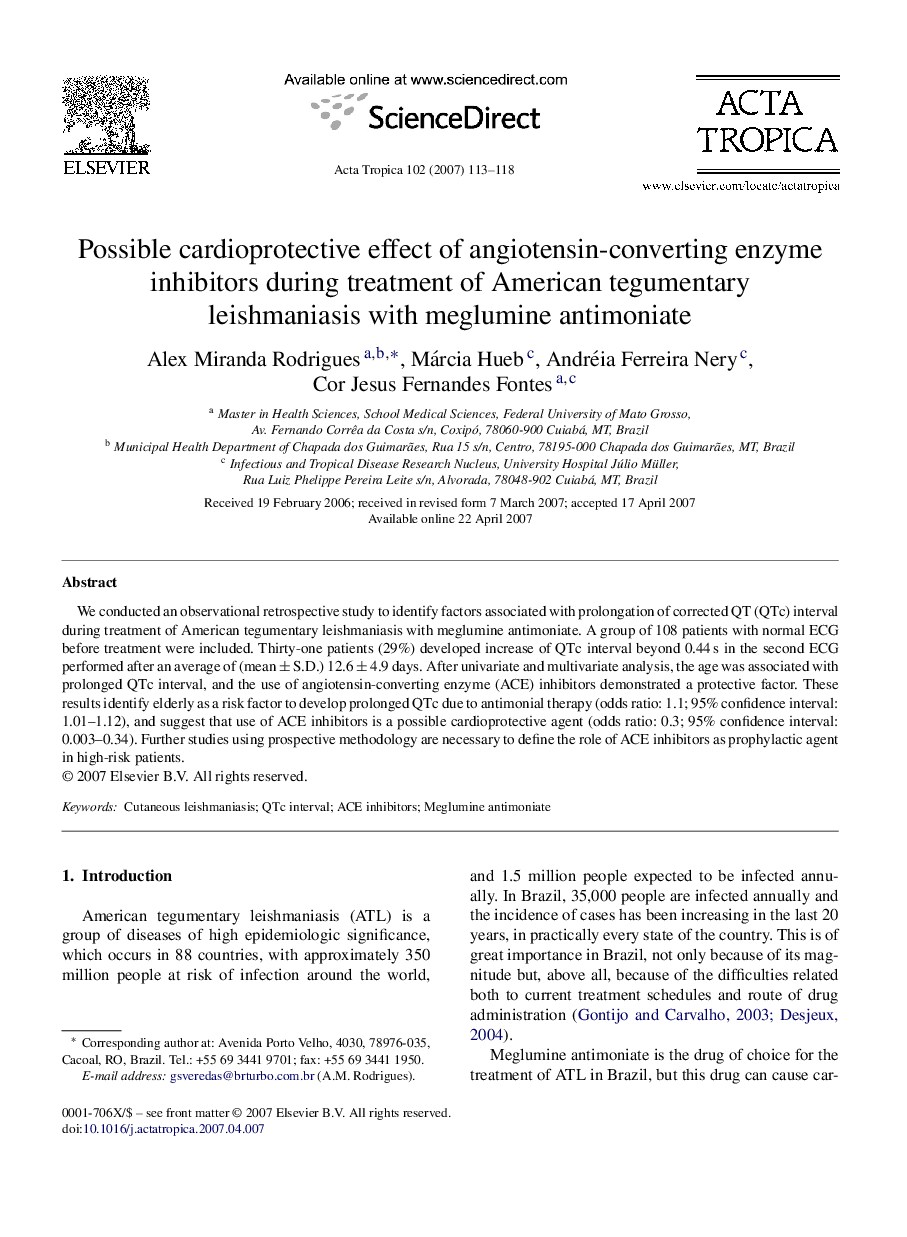| Article ID | Journal | Published Year | Pages | File Type |
|---|---|---|---|---|
| 3394616 | Acta Tropica | 2007 | 6 Pages |
Abstract
We conducted an observational retrospective study to identify factors associated with prolongation of corrected QT (QTc) interval during treatment of American tegumentary leishmaniasis with meglumine antimoniate. A group of 108 patients with normal ECG before treatment were included. Thirty-one patients (29%) developed increase of QTc interval beyond 0.44 s in the second ECG performed after an average of (mean ± S.D.) 12.6 ± 4.9 days. After univariate and multivariate analysis, the age was associated with prolonged QTc interval, and the use of angiotensin-converting enzyme (ACE) inhibitors demonstrated a protective factor. These results identify elderly as a risk factor to develop prolonged QTc due to antimonial therapy (odds ratio: 1.1; 95% confidence interval: 1.01-1.12), and suggest that use of ACE inhibitors is a possible cardioprotective agent (odds ratio: 0.3; 95% confidence interval: 0.003-0.34). Further studies using prospective methodology are necessary to define the role of ACE inhibitors as prophylactic agent in high-risk patients.
Related Topics
Life Sciences
Immunology and Microbiology
Parasitology
Authors
Alex Miranda Rodrigues, Márcia Hueb, Andréia Ferreira Nery, Cor Jesus Fernandes Fontes,
